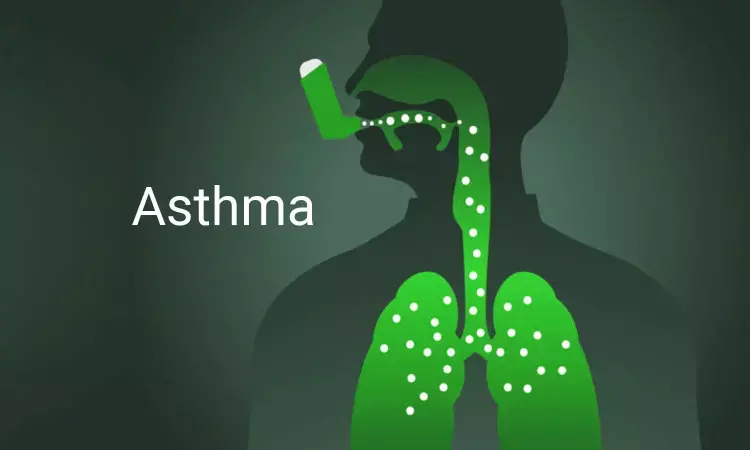- Home
- Medical news & Guidelines
- Anesthesiology
- Cardiology and CTVS
- Critical Care
- Dentistry
- Dermatology
- Diabetes and Endocrinology
- ENT
- Gastroenterology
- Medicine
- Nephrology
- Neurology
- Obstretics-Gynaecology
- Oncology
- Ophthalmology
- Orthopaedics
- Pediatrics-Neonatology
- Psychiatry
- Pulmonology
- Radiology
- Surgery
- Urology
- Laboratory Medicine
- Diet
- Nursing
- Paramedical
- Physiotherapy
- Health news
- Fact Check
- Bone Health Fact Check
- Brain Health Fact Check
- Cancer Related Fact Check
- Child Care Fact Check
- Dental and oral health fact check
- Diabetes and metabolic health fact check
- Diet and Nutrition Fact Check
- Eye and ENT Care Fact Check
- Fitness fact check
- Gut health fact check
- Heart health fact check
- Kidney health fact check
- Medical education fact check
- Men's health fact check
- Respiratory fact check
- Skin and hair care fact check
- Vaccine and Immunization fact check
- Women's health fact check
- AYUSH
- State News
- Andaman and Nicobar Islands
- Andhra Pradesh
- Arunachal Pradesh
- Assam
- Bihar
- Chandigarh
- Chattisgarh
- Dadra and Nagar Haveli
- Daman and Diu
- Delhi
- Goa
- Gujarat
- Haryana
- Himachal Pradesh
- Jammu & Kashmir
- Jharkhand
- Karnataka
- Kerala
- Ladakh
- Lakshadweep
- Madhya Pradesh
- Maharashtra
- Manipur
- Meghalaya
- Mizoram
- Nagaland
- Odisha
- Puducherry
- Punjab
- Rajasthan
- Sikkim
- Tamil Nadu
- Telangana
- Tripura
- Uttar Pradesh
- Uttrakhand
- West Bengal
- Medical Education
- Industry
Benralizumab reduces steroid needs in patients of severe asthma, Study finds

Researchers have found that benralizumab (Fasenra; AstraZeneca), an interleukin-5 antagonist was proven to be able to eliminate or reduce oral corticosteroid (OCS) use in the majority of patients with severe eosinophilic asthma.
These High-level results were obtained from the PONENTE Phase IIIb open-label trial which included nearly 600 patients in Europe, North America, South America, and Taiwan.
Benralizumab is a monoclonal antibody that binds directly to IL-5 receptor alpha on eosinophils and attracts natural killer cells to induce rapid and near-complete depletion of eosinophils via apoptosis (programmed cell death).
Severe asthma is an often-debilitating condition affecting approximately 34 million people worldwide. More than one-third of these patients currently use chronic or intermittent OCS on top of other therapies to control their symptoms and exacerbations. However, frequent or chronic OCS use can lead to serious adverse effects.
Phase IIIb trial basically aimed to evaluate the efficacy and safety of reducing daily OCS use after initiation of 30 mg dose of Fasenra administered subcutaneously (SC) in adult patients with severe eosinophilic asthma on high-dose inhaled corticosteroids (ICS) plus long-acting beta2-agonist (LABA) and long-term use of OCS therapy with or without additional asthma controller(s).
According to the researchers, patients recruited into the study had been on maintenance OCS dose of ≥5 mg of prednisone for at least three months and had a baseline peripheral blood eosinophil count of ≥150 cells/μL or baseline eosinophils below 150 cells/μL with a documented eosinophil count of ≥300 cells/μL in the past 12 months.
The following observations were noted-
- On the first primary endpoint, 62% of patients achieved complete elimination of daily OCS use.
- On the second primary endpoint, 81% of patients achieved complete elimination or were able to reduce their daily OCS dose to 5mg or less when the further reduction was not possible due to adrenal insufficiency.
Professor Andrew Menzies-Gow, Director of the Lung Division, Royal Brompton Hospital, London, UK, the principal investigator of the PONENTE trial, said: "These exciting results demonstrate Fasenra's impact in eliminating or reducing oral corticosteroid use. The reductions achieved with the personalized oral corticosteroid tapering schedule are particularly important because adrenal insufficiency can be a barrier to safe and meaningful oral corticosteroid reduction. These data should inform severe asthma treatment guidelines and strengthen physicians' confidence to more safely eliminate chronic oral corticosteroid use in their patients."
Mene Pangalos, Executive Vice President, BioPharmaceuticals R&D, said: "Around 13.5 million people worldwide with severe asthma currently rely on oral corticosteroids to control exacerbations and prevent hospitalizations. However, over-reliance on oral corticosteroids can also cause significant health risks for patients, as well as additional strain on health systems. These data further support Fasenra's clinical profile in eliminating oral corticosteroid use across a broader population of severe asthma patients."
Dr. Nandita Mohan is a practicing pediatric dentist with more than 5 years of clinical work experience. Along with this, she is equally interested in keeping herself up to date about the latest developments in the field of medicine and dentistry which is the driving force for her to be in association with Medical Dialogues. She also has her name attached with many publications; both national and international. She has pursued her BDS from Rajiv Gandhi University of Health Sciences, Bangalore and later went to enter her dream specialty (MDS) in the Department of Pedodontics and Preventive Dentistry from Pt. B.D. Sharma University of Health Sciences. Through all the years of experience, her core interest in learning something new has never stopped. She can be contacted at editorial@medicaldialogues.in. Contact no. 011-43720751
Dr Kamal Kant Kohli-MBBS, DTCD- a chest specialist with more than 30 years of practice and a flair for writing clinical articles, Dr Kamal Kant Kohli joined Medical Dialogues as a Chief Editor of Medical News. Besides writing articles, as an editor, he proofreads and verifies all the medical content published on Medical Dialogues including those coming from journals, studies,medical conferences,guidelines etc. Email: drkohli@medicaldialogues.in. Contact no. 011-43720751


